“The more you educate the customer on the processes and pricing it takes to fix their car, then they’ll make better decisions on their repairs,” says David Rogers
Denver—The Team Development Summit hosted by Auto Profit Masters, May 6-7, in Denver, offered technicians, advisors and owners training from the nation’s leading auto repair industry experts. The event strengthened shop operations at numerous levels, while providing an emphasis on giving technicians the tools they need to advance their careers.
David Rogers, president of Auto Profit Masters and a trainer at the event, presented “How to Attract High Quality Customers Who Value Diagnostics and Are Ready to Buy” for shop owners. The following are a few key takeaways.
Explaining Labor Rates
If your state doesn’t require a shop to post labor rates, then don’t, Rogers advised.
“The average person coming into a business will compare what they make hourly to what the shop charges, but they don’t understand that the labor rate not only pays the tech, but also for their training, uniforms, the lights coming on and running the shop. They will protest, and you will never win that debate.
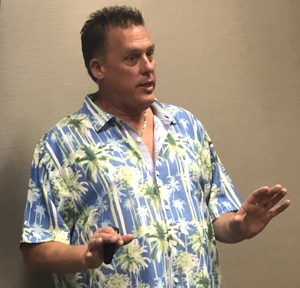
“So don’t post labor rates if you don’t have to. However, if they ask what your labor rate is, then tell them, but don’t tell them and wait for them to react. Be sure to teach them the value, and that the labor rate is not what is paid to the technician, but it allows the shop to have the equipment, pays for the service staff, loaner cars and everything else. The more you educate the customer on the processes and pricing it takes to fix their car when they ask, then they’ll make better decisions on their car repairs.”
Vehicle Inspections and Liability
Shops should not service vehicles that aren’t given owner permission to conduct an inspection, Rogers said. “Courts across the country have consistently found that shops are liable if something happens to the customer after they leave the shop and they weren’t advised of a vehicle concern. We must inspect the entire vehicle if we are to perform a service. Otherwise, we won’t take the vehicle in.”
For shops that use signed customer waivers, Rogers said that legal precedence has stated it’s difficult for people sign away their rights, especially when it comes to safety.
“When you’re considered an expert, you have a different level of responsibility, and in the automotive industry, we’re considered the experts. When a vehicle enters a bay, an expert is expected to notice issues and concerns through a professional inspection and inform the customer. So, if I let a customer sign a waiver and there’s a problem down the road, maybe some judges would let me off, but there would be judges that absolutely would not. I don’t gamble. And besides, if I let the customer negotiate how I take care of their car, are they the type of customer I want in my shop?”
Diagnostic Charges and Building Trust
Keller Bros., in Littleton, Colo., where Rogers is COO, has deliberately emulated medical offices to change the perception of auto repair. “Repair shops were dirty, full of tires and batteries, smelled like grease, and logos were cartoonish — but we flipped that by being like a medical office. And we wanted to speak in medical terms when it came to a series of tests and diagnostics.”
Just saying that there will be an initial $150 diagnostic charge doesn’t offer any value, he said. Instead, a shop needs to educate the customer that there will be a series of tests to address their vehicle’s specific issue to determine a proper diagnosis.
“We tell them, ‘If we’re able to run just one test and get there, then you won’t be responsible for the full amount, but we may need to go further. So, there are two ways we can do this: call you after each individual test to re-approve work, but if you’re not available it’s going to stretch out the repair time; or you can approve diagnostic charges up to a certain amount and we’ll find out what’s wrong.’
“Emulate a doctor because everybody trusts the doctor — we teach the customer what they need to hear before we give them a recommended service. And it’s essential to building your shop’s brand and setting yourself apart.
“If they approve $500 of diagnostics and the shop only needs $175 to determine the issue, then you have a customer for life when you tell them you’re crediting it back to them. They will see that we’re doing the right things for the right reasons.”
And when there’s pushback on diagnostic charges, it’s important to educate customers that technicians need to be compensated for their time and expertise. They have no idea of the training and tooling investments that techs need to make in order to service their car — it’s hard for the normal consumer to relate to. We want to give people an answer for what they’re paying for.”
Follow Ups and Feedback
In today’s busy world, many businesses send out customer surveys, a follow-up text or email, which Rogers said is better than doing nothing, but if a shop has the time — or limited time — to call customers after a repair for service feedback, he suggests setting parameters.
“You can determine a certain group of customers, maybe those who spent more that $500 in service and repair, and call them back within, say, 72 hours. If you can make those personal phone calls and tell them you appreciated the opportunity to serve their family, let them know you want to be sure that all work was done to their satisfaction, and if there’s anything that you can do differently in the future — then you’ll be amazed at what happens because nobody does that anymore.”
A shop will not only build its customer base, those phone calls will also help build the right customer base. “If you’ve been relying on discount customers, this is a great way to attract 5-star customers.”
Editor’s Note: For more shop advice from Rogers in Aftermarket Matters, read Getting Results from Customer Relationships, Take the Fear Out of the Customer Experience and Bridge the Trust Gap, How to Win Over a Tough Customer, Empowering Service Writers, Boost Your Shop’s Visibility With These Marketing Techniques, The Power of Customer Reviews, Defining Your Brand Strategy and Telling Your Shop’s Story, The Two Times You Need to Market Your Shop, The real cause of the technician shortage, and As pandemic closes doors, doors of opportunity open.
Scholarships Help Send Next Generation to Summit
Auto Profit Masters had also announced that seven auto repair technicians received scholarships to attend the Team Development Summit. In an announcement prior to the event, Rogers emphasized the importance of investing in the careers of technicians to address the shortage of talent, reduce the high turnover rates at shops, and provide the excellent service. “We’re excited to provide these techs with dynamic training that will help accelerate the pace of those choosing this amazing career path.”
The seven scholarship recipients included established and apprentice technicians from across the country. Receiving a full scholarship, including registration, hotel and airfare, were:
- Jason Robertson, Myers Automotive, Towanda, Kan.
- John Wells, Auto-Bon, Simsbury, Conn.
- Trevor Burie, D’s Auto & Truck Repair, Holland, Mich.
- Francis Hanafin, MJ Auto Repair, Wichita, Kan.
The following were awarded airfare to the summit:
- Oscar Galvan, Melton Automotive, Alabaster, Ala.
- Jalen Simpson, Universal Technical Institute, Rancho Cucamonga, Calif.
- Marty Martin, The Mechanix, Skiatook, Okla.
Trevor Burie is nearing completion of his Automotive Technology degree in Holland, Mich., while working at D’s Auto & Truck Repair. “I am moving into more of a technician position now, while I take classes. I plan to be a full-time technician soon,” he said, adding that the summit will give him an extra boost to elevate his learning.
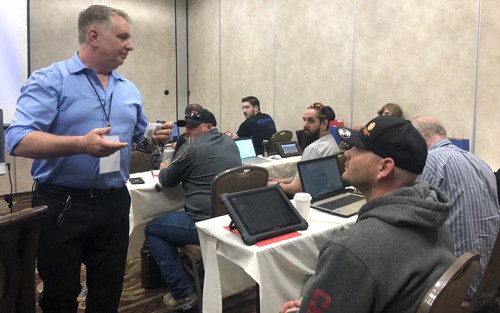
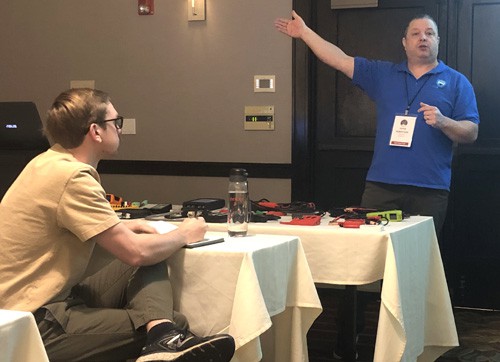

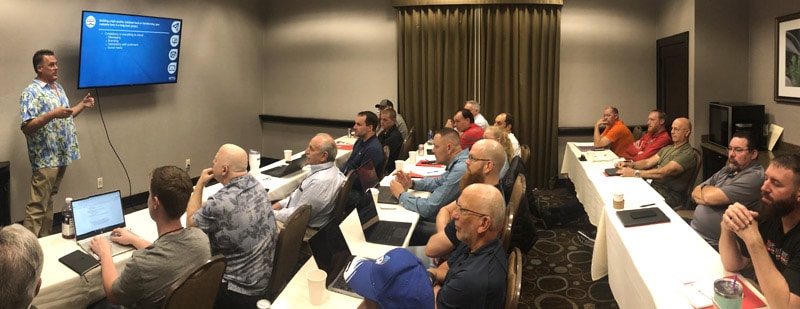
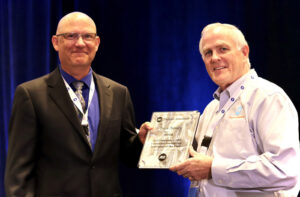

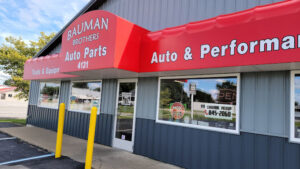
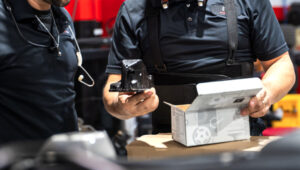





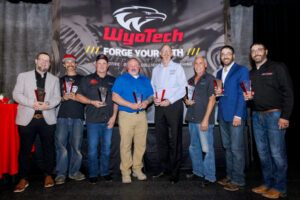
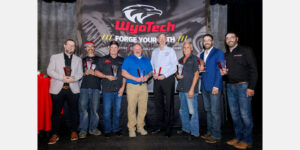

Comments are closed.